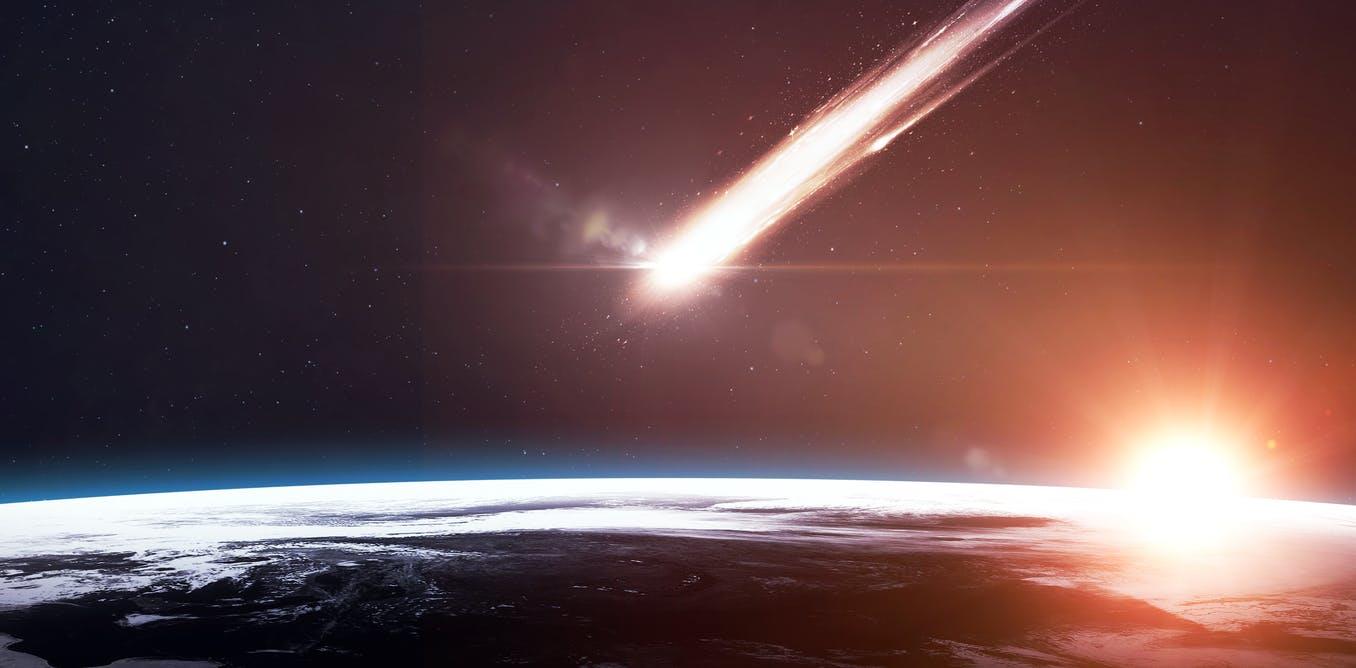SYDNEY, Aug. 14 (Xinhua) -- The oldest evolved rocks on Earth are the consequence of asteroids colliding with the Earth 4 billion years ago, according to research released by Australia's Curtin University on Tuesday.
The study suggests that the rocks, part of the Acasta Gneiss Complex in northwest Canada, are the result of asteroids smashing into the Earth and melting its crust, allowing evolved, or granitic, rocks to form.
What led scientists to suggest that they were formed in this way is firstly that the composition of the rocks is different from the those typical of the Earth's ancient crust.
"The only known evolved rocks from the Hadean eon are those in northwest Canada, which have chemical compositions clearly distinct from those that dominate ancient continental crust worldwide, suggesting they were formed in a different way," research co-author Professor Phil Bland said.
Secondly, the rocks were melted at very low pressures, equivalent to the uppermost few kilometers of crust, meaning the event happened closer to the Earth's surface.
"The melting of these rocks at such shallow levels is most easily explained by meteorite impacts, which would have supplied the energy to attain the extreme temperatures required for melting," lead researcher Dr. Tim Johnson said.
This period, around 4 billion years ago, was dominated by a barrage of asteroid impacts that would have caused widespread melting and recycling of the Earth's surface.
"Consequently, there are almost no rocks preserved from Earth's formative Hadean eon," Bland said.
Meaning these rocks are rare survivors from a very different time on Earth.





